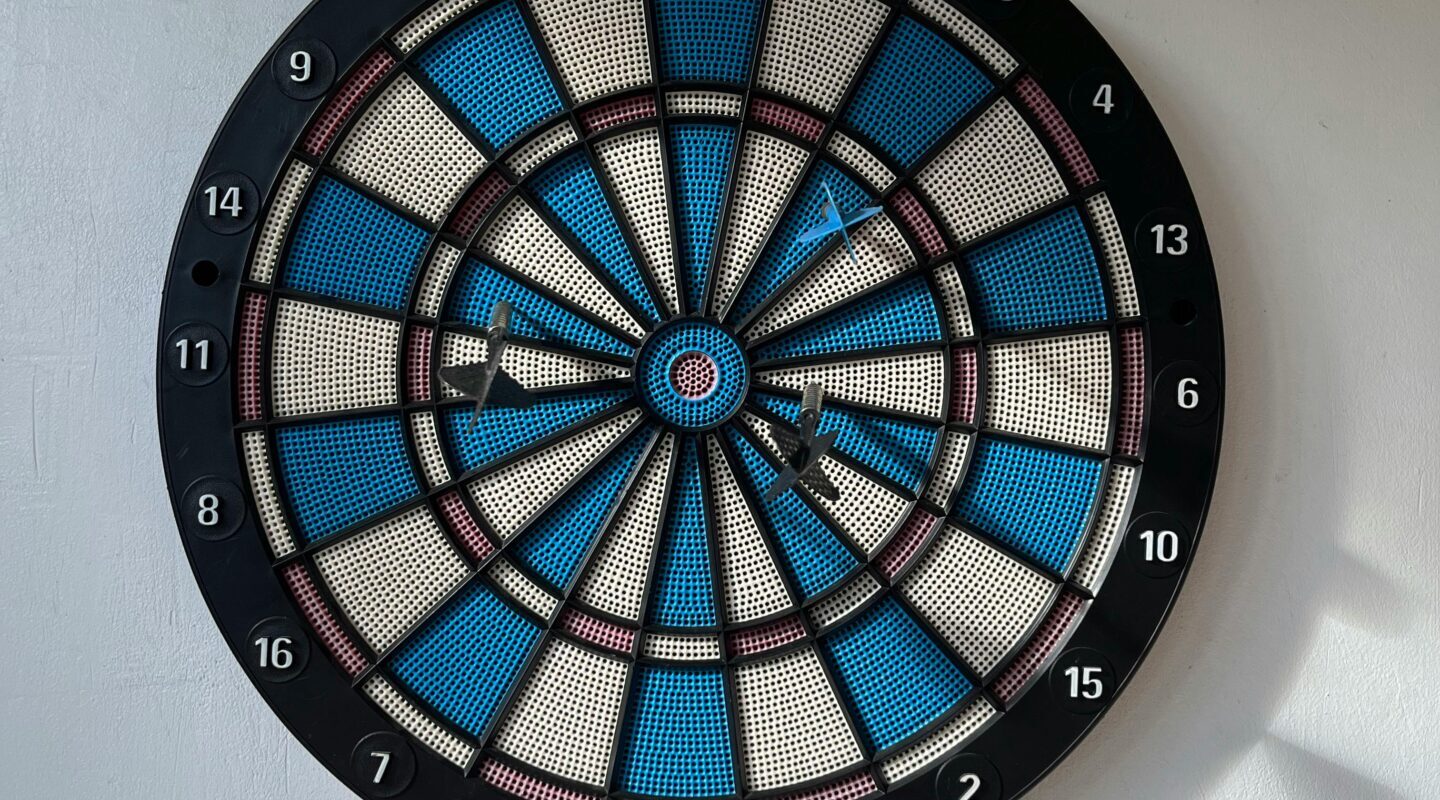
What Are SMART Goals?-
Do you find that you have big dreams and plans for your life, but often tend to fall short? It’s like you know exactly where you want to go, but have no idea how to get there. Unfortunately, when you fail to plan, you plan to fail.
Setting yourself up for success is easy once you understand how to set goals that meet certain criteria. This makes your goals so much easier to believe and achieve. This is where SMART goals come into play.
First introduced in 1981 in a Management Review article by George T. Doran, Arthur Miller & James Cunningham titled “There’s a S.M.A.R.T. Way to Write Management’s Goals and Objectives”. SMART goals is an acronym containing five specific elements that will make you more likely to smash all your goals. Specific, Measurable, Achievable, Realistic, and Time-Bound.
When you mix all these goal-setting ingredients, you’ll be more likely to succeed. Even if you don’t succeed, it’ll help you learn how to improve and grow for your next goal.
Specific-
 When your goal is too broad, it’s hard to figure out which actionable steps you need to take. It can be hard to tell if you’re on the right track. When setting a goal, aim to make it as specific as possible.
When your goal is too broad, it’s hard to figure out which actionable steps you need to take. It can be hard to tell if you’re on the right track. When setting a goal, aim to make it as specific as possible.
A huge mistake people make is not getting specific enough about their objectives. Wanting to be the best in a certain field is a very vague goal. Do you want to have the highest sales, move up in your position, or have the best client relationships?
Specify your goals and narrow them down so you can hone in and focus. This will make coming up with a goal-setting plan a lot easier. If you want to get into better shape, be specific about what kind of shape you want to get into.
Do you want to be able to run a half-marathon in a certain amount of time? Do you want to be able to bench press a certain weight, or do you want to do more than one full pull-up or push-up without crumbling to the floor? Whatever goal you have in mind, make it as specific as possible.
Think about what it’s going to take to achieve this goal. Are you able to do it alone, or are you going to need the help of others? Do you have employees you’ll need to delegate tasks to, a personal trainer to hold you accountable, or are you able to tackle your goal on your own?
Specific Questions To Ask-
Take some time to think and write down what your goal is and why you want to accomplish it. If you’re attempting to achieve something because you think it’ll make you look cool in the eyes of others or you want to prove a point to someone, your motivation won’t be in the right place.
At the end of the day, your goals should stem from you and what’s truly aligned in your heart. Follow these writing prompts below to get clear and specific about what your goals are and why you want to hit them.
- What is one major goal I have for myself?
- What is the reasoning behind this goal?
- Is this goal aligned with my core values and my purpose?
- Am I doing this for myself or others?
Measurable-
 One major reason why many people don’t succeed with their goals is that they cannot be measured. When you can’t measure your progress, it’s tough to make the necessary adjustments to continue on the path to success. If you can’t measure your goals, you don’t have a benchmark of when you’ve hit your goal or not.
One major reason why many people don’t succeed with their goals is that they cannot be measured. When you can’t measure your progress, it’s tough to make the necessary adjustments to continue on the path to success. If you can’t measure your goals, you don’t have a benchmark of when you’ve hit your goal or not.
Your goal should be like an elevator where you can clearly see which floor you’re on and if you’re getting closer or further from the top floor. Let’s say your goal is, “I want my small business to make enough to provide for myself and my family.” While that’s a fantastic objective, how will you know when your business is making enough money for you to be comfortable?
Calculate your family’s basic monthly expenses. Use that number to know how much income you’d need your small business would need to earn every month. Once you’ve hit that goal, you can set that number higher if you wish.
If you want to hit a personal best in the gym, give yourself a measurable number. This way, you know how much progress you’re making along the way. Maybe you want to be able to bench press a certain weight in the next 6 months or run a mile in under a certain time frame.
Without measuring your progress, it’s impossible to stay on track or know how close or far you are from reaching your goal. When you see for yourself that you’re on the right track, it’ll give you even more motivation to keep pushing.
Achievable-
Reach for the stars, aim for the moon. Although it’s cool to have big goals and dreams, set your goals in a way that you can actually achieve them. If you set your goals too high to reach, what’s the point of continuing to set goals and failing?
If your goal is to become a billionaire next year, more likely than not, it’s not going to happen. No matter no brilliant or hard-working you are. However, maybe you can double your income every year. It’s better to create smaller, frequent, and achievable goals than to create one giant goal that’s way out of reach.
You’ll want to find a happy medium for setting goals that challenge you but are still within your grasp. This way, you can celebrate your wins knowing that they weren’t easy and took work to achieve, but could still be accomplished by you. Once you successfully reach a goal, you’ll be inspired, believing that you have the power to achieve any goal you set your mind on next.
Relevant-
You’ll want to set your goals in a way that makes sense for your objectives. Having all types of goals for yourself is great, but you’ll want to remember the big picture when setting your goals.
If your goal is to become a successful entrepreneur one day, the most relevant goal in front of you would probably be to come up with a business plan. Then you’d want to look and acquire how you’d get the funding. After that, you’d need to sort out the supplies you need and where you’d source them from.
After the foundation is set, could you then come up with plans and goals for marketing and profitability? The goals you set should be relevant to where you are currently. Wanting to become a successful entrepreneur is great, but not relevant if you haven’t got the smaller, more relevant goals out of the way first.
Time-Bound-
 In order for you to reach your goals in a timely fashion, it’s important to set realistic time frames. If your goal has no set time limit, you could be trying to reach that goal for the rest of your life. Set a realistic time frame while not taking too much time so that you can accomplish other goals you’d like to reach in the future.
In order for you to reach your goals in a timely fashion, it’s important to set realistic time frames. If your goal has no set time limit, you could be trying to reach that goal for the rest of your life. Set a realistic time frame while not taking too much time so that you can accomplish other goals you’d like to reach in the future.
If your goals have to do with finance or sales objectives, set them into yearly quarters like Q1, Q2, Q3 & Q4. Depending on what your goal is, break your set time periods into smaller chunks and try to hit mini-goals along the way. This method will help you stay motivated and celebrate the small wins. If your major goal seems a ways away, you can inch closer by setting these mini targets.
Final Thoughts-
 By using the SMART goal-setting method, you’ll set yourself up for success by laying out goals that are easy to define and measure accordingly. Make your goals challenging while also being achievable and realistic about where you are in life so that you can pull them off.
By using the SMART goal-setting method, you’ll set yourself up for success by laying out goals that are easy to define and measure accordingly. Make your goals challenging while also being achievable and realistic about where you are in life so that you can pull them off.
Having a set time frame to complete your goal will allow you to create a system where you can plan for how much time you’ll need to spend on achieving your ultimate goal.
By setting SMART goals, you’ll be more likely to execute your goals and continue to push yourself and grow in a way that authentically aligns with you. Test using the SMART goals method and reply in the comments about how it works for you.




